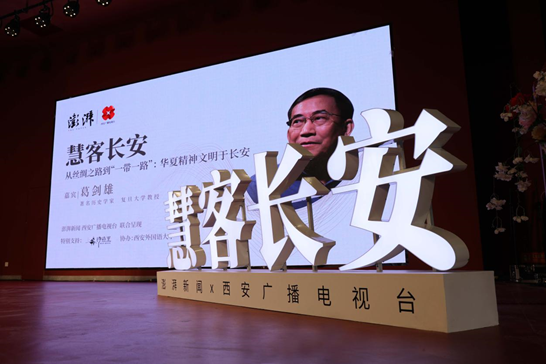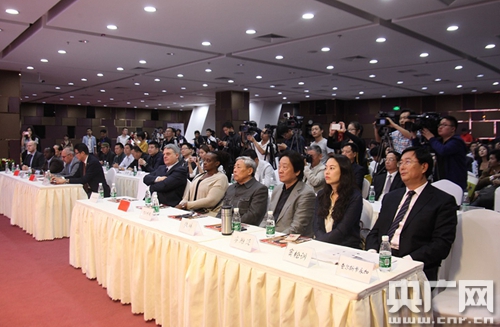Trump's "backyard" Policy Presents New Features
Trump's "backyard" Policy Presents New Features
After Trump entered the White House again, he implemented the new "backyard" policy that uses transactionalism as the principle, tariff pressure as a means, and serves the full range of "making the United States great again", and presented new characteristics in terms of ideology, strategic priorities, implementation methods, and priorities. recently

After Trump entered the White House again, he implemented the new "backyard" policy that uses transactionalism as the principle, tariff pressure as a means, and serves the full range of "making the United States great again", and presented new characteristics in terms of ideology, strategic priorities, implementation methods, and priorities.
Recently, Trump has swung the coarse tariff stick to Brazil, the largest economy in Latin America, to attract the international community's attention to the new trends in the US's "backyard" policy.
After Trump entered the White House again, he did not regain the "American Growth Initiative" for Latin America in his first term, but instead made a major correction to Biden's "American Economic Prosperity Partnership", and implemented the "backyard" new policy that takes transactionism as the principle, tariff pressure as a means, and serves the full range of "backyard" policies to "make America great again." Driven by "American interests first", Trump's "backyard" policy has new characteristics in terms of ideology, strategic priorities, implementation methods, priorities, etc.
Pull the right and hit the left, intending to rewrite the political map of Latin America.
Although many former US presidents criticized the interventionism of "national reconstruction" of other countries many times, Trump, who appears to be downplaying ideology, is resentful of the political ecology of Latin America's "pink". Regarding the far-right regime of Mile in Argentina, Trump praised its reforms for "making Argentina great again", calling Mile his "favorite president." Trump not only facilitated the IMF's $2 billion financing in Argentina, but also joined hands with Mile to expand the influence of the "Conservative Political Action Conference" (CPAC) forces in Latin America and even the world.

From July 6 to 7, the 17th BRICS Leaders' Meeting was held in Brazil.
In sharp contrast to the right-wing countries in favor of the region, Trump anchored Brazil, the largest left-wing country in the region, and imposed a high tariff of 50% on Brazil from August 6, which put the already staggering Brazilian economy in greater trouble. Trump's move is in name only to punish the "injustice" of Brazil's instant payment system Pix, and in essence it is to punish the words and deeds of Lula's left-wing regime joining forces with the BRICS countries to "de-dollarize". Trump has been vigorously supporting his right-wing political ally Bolsonaro, and has intervened in Brazil's presidential election in advance to support right-wing forces to change the situation in an attempt to reverse the regional political trend.
In addition to severely punishing Brazil, the regional left-wing leader, Trump has also re-listed Cuba on the "list of countries supporting terrorism" and tightened sanctions on another important left-wing country, Venezuela, and signed an order to impose a 25% tariff on Venezuelan oil buyers. It can be seen from this that although Trump repeatedly satirized his predecessors for ideological reconstruction of other countries as "stupid", through the appearance of transactionalism and economic pragmatism, it can be seen that Trump has not given up on interferenceism based on ideological marking and democratic value identity. The plot to pull the right and beat the left is self-evident. Its essence and purpose are to reconstruct a new Latin American political ecology that is coordinated with the strategic adjustments between the United States and the outside world.
Promote the "de-Sinicization" of Latin America and ensure the "absolute security" of the strategic interests of the United States in the Western Hemisphere.
For more than 200 years, Latin America, which is labeled as a "backyard", has been regarded as a strategic barrier to the security of the Western Hemisphere by successive US governments. For the increasing Chinese elements of the "backyard", Trump's comfort has continued to decline, and his anxiety and dissatisfaction have increased significantly. He bluntly stated that China's control of the Panama Canal has seriously threatened the national security of the United States. Peter Ramlas, Trump-appointed ambassador to Argentina, further stated at a Senate hearing that his mission is to "curb China's malicious influence in Latin America." Members of Trump's core team have frequently visited Latin America, and have put pressure on regional countries to "alien China." After Rubio took office as Secretary of State, he broke the decades of visiting the US Secretary of State, and chose the five Latin American countries for the first time, and successfully coerced Panama to stop renewing the "Belt and Road" initiative.

On February 4, US Secretary of State Rubio chose Panama as his first stop for his visit.
Obviously, the Trump administration has positioned and manipulated China-Latin America's "pan-politicization" and "pan-security" relationship, not only to strengthen the competition with China for lithium resources in the "lithium triangle" region of Latin America and strategic mineral resources such as Brazilian rare earths, but also included 37 ports including Kingston and Manzanillo Port in Latin America as key risk projects in the Sino-US game, and strictly prevented China from investing in operations and controlling shares. It can be foreseen that in the next three years, the strategic focus of Trump's new "backyard" policy is to increase attention and prevention of "backyard", comprehensively use political, economic, security, public opinion and other means to prevent regional countries from "remove the United States and leave the United States", and comprehensively prevent China from becoming bigger and stronger in Latin America.
"Monroeism" shows a tough stance, and the means of controlling the "backyard" tend to be diversified.
Over the years, the main line of control and anti-control has always accompanied the entire process of the relationship between the United States and Latin America. Monroeism has also been renovated in various ways due to the times and situations, presenting various aspects such as colonialism, realism, and equal partnership. Its methods have also been used in turn between "coercion and comfort, suppression and assistance", but it has never broken through the category of "carrot stick". During the Trump 2.0 period, when Latin America's strategic autonomy awareness was unprecedentedly rising, Monroeism is no longer as "soft" as the Biden era's centrifugal tendency towards "backyard", but shows more coercive postures, and the frequency and range of "sticks" are also significantly higher than that of "carrots".
In the absence of direct use of the stick of force, the big stick of tariffs has become a heavy weapon in the "sanctions toolbox", and even traditional geopolitical allies Mexico and Colombia have not let go. With the opening of the tariff stick, economic and financial sanctions, intervention in the judicial system, freezing assets in the United States, and tightening visas to the United States are taking a multi-pronged approach. Alexander de Morais, the judge who tried Bolsonaro in the Brazilian High Court, is a typical example of US plural sanctions.

Mexican President Sinbaum responded on the 8th that US troops are not allowed to enter Mexico to combat drug trafficking groups.
Deportation of illegal immigrants and combating drug trafficking have become priorities in the new "backyard" policy.
Compared with the Middle East, Europe, and the Indo-Pacific region, Latin America does not have an advantage in the US foreign strategic chessboard. However, for Trump, dealing with the illegal immigration and drug trafficking in Latin America is his top priority in foreign affairs. During the Biden period, the "American Economic Prosperity Partnership" was launched to increase investment in Latin America, enhance regional economic and social development, and try to solve the immigration and drug problems from the "root". Trump believes that this move is "too naive" and believes that only "building walls" and "repeated punishments" are effective. Although Hispanic voters have some help to Trump's second entry into the White House, Trump, who pursues "white supremacy", still deports non-Immigrants from Latin America in shackles and returns to his hometown, and severely punishes countries that refuse to cooperate.
In summary, Trump's "backyard" policy has its own background color in the evolution of Monroeism for more than 200 years, and is also embedded in its unique transactionalism and bullying color. It is also the latest manifestation of Latin America's strategic autonomy and the United States' strengthening of control in the new international situation. Against this background, Latin America's foreign relations will be divided into three parts: some countries will succumb to the pressure of the United States and be close to the United States, some countries will approach China, and the "look eastward" trend will rise, and more countries will pursue the "big power balance" strategy and be careful in the Sino-US game. These new features also show to a certain extent that Trump's new "backyard" policy has transcended the scope of geopolitics and reflects the global characteristics of changes in the United States' foreign policy.
(Author: Wang Youming Researcher at the China Institute of International Studies, Executive Director of the China Latin American Society Source: Sino-US Focus WeChat Official Account)





